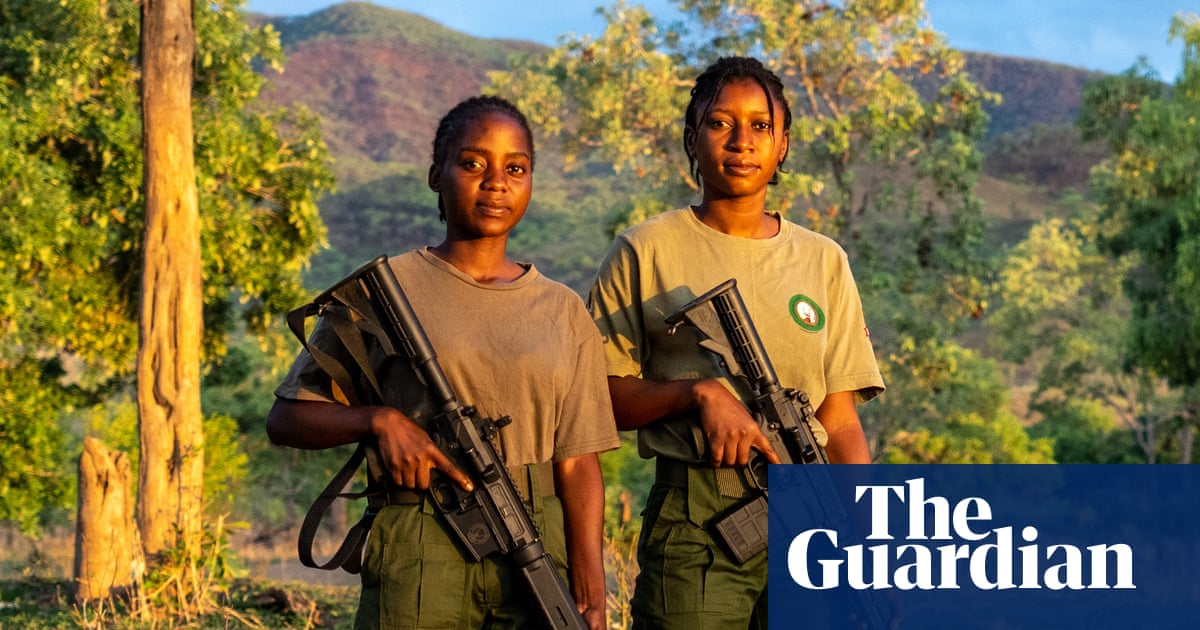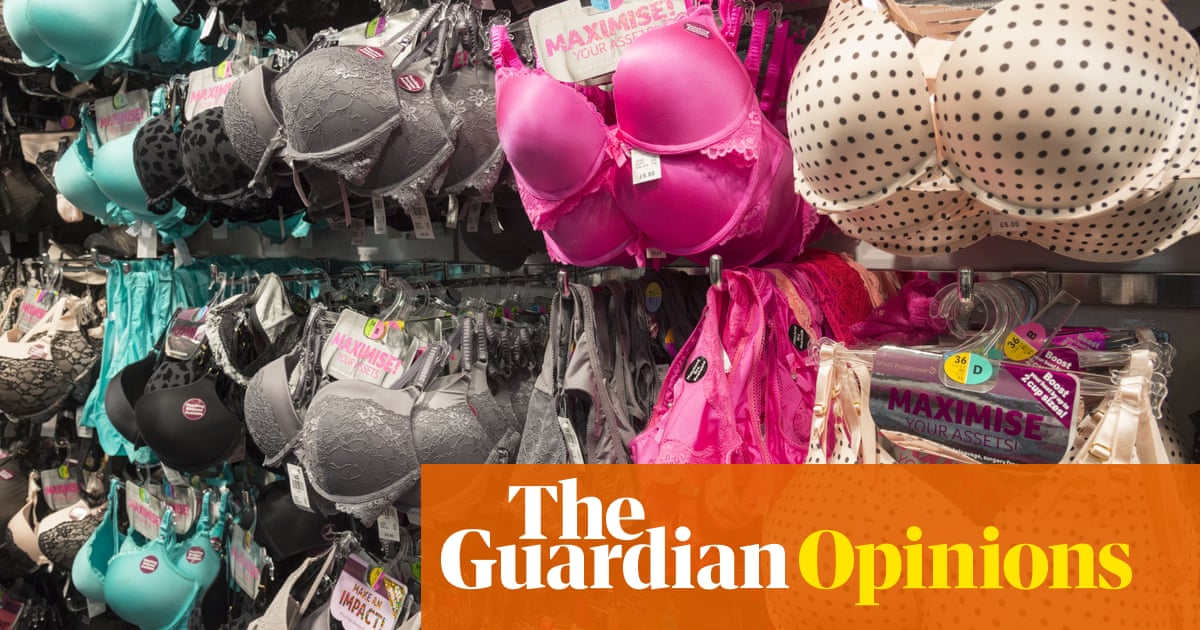
n 2015, Nadiya Hussain’s life changed completely after she won the sixth series of The Great British Bake Off. She remains the most popular winner in the show’s history. “I mean, how do you even measure that?” she says, from her home in Milton Keynes. “That makes me feel weird and awkward, because we’re all just doing what we love.” Now 36, she has presented several cooking and travel shows and has written cookbooks, children’s books and a novel. She also baked the Queen an orange drizzle cake for her 90th birthday celebrations.
You must still have been at school 20 years ago.
I was 16, so I’d just left high school. Big year. I was studying for my GCSEs. Oh, man, that seems such a long time ago.
What was your favourite subject?
Food studies. I still have my project. I will share it with the world one day. I had to design my own cake, design its packaging, design how I would market it, what supermarket it would go in, and all of that. That is my idea of heaven. My little brother was about six at the time, and he was my guinea pig, so he would tell me if the cake was right, and if he liked the packaging, and all of that.
What was the cake like?
I made a small four-inch round cake, like a party cake, for an individual. It was red and white marbled, and it was sandwiched with jam, butter cream, and then had another layer of marble cake. My theme was Pokémon. I still have a limited edition Pokémon card, a shiny one. I nicked it off my brother and stuck it in my book. He still doesn’t know.
He might find out now.
If it’s worth anything, I might have to give him some of the proceeds. But I made a Pokémon cake with a Pokéball on top that I designed with fondant.
Was cooking a big part of your life when you were 16?
Baking was only part of my life when I was at school. I never baked at home. My mum’s a bit of a dictator in the kitchen, she doesn’t like anybody being in there. You can watch and learn, but she doesn’t really let you do anything, and even when you do something, it’s never right. Even now, way before lockdown, when we used to go over, I’d say: “Mum, can I help you?” And she’s like: “No, I don’t like the way you cut onions.” No problem, Mum. It doesn’t matter that I cook for a living. Fine! I cooked more with my dad because he was quite experimental and quite creative.
What were you eating 20 years ago?
This is the stuff that we tell our kids and they hate us for it. We lived around the corner from a gorgeous little corner shop, one that sold everything, bowls and pots and pans and toilet roll and sweets, and if your washing machine broke, you could go to the back and use his washing machine. I hated breakfast, but I would get up really early, go down to the corner shop with my little sister, and buy this twin pack of Mr. Kipling’s apple pies, and the Happy Shopper swiss rolls, the ones with the cream that stuck to the roof of your mouth because it was so artificial, with a sugary crust on the outside. We would slice up the swiss roll for everyone else, but me and my sister would eat the apple pies before they woke up. And at school, we would have chips every day. This is the bit my kids hate. They’re like, what? Did you guys have any salad? No! No salad. It was always chips, beans, mash, beans, rice, beans, either with fish fingers, a burger or pizza. And then you always had cake and you always had custard. Tottenham cake, that soft sponge with really thin watery icing, with sprinkles that just start to bleed into the icing, with congealed lumpy custard. That was it. That put me off custard for the rest of my life.
Do you think there’s been a big shift in what kids eat at school?
It’s changed so much. My kids aren’t fussy eaters. They’ll eat anything, but they’ve grown up in a home of spice, there are a lot of layered flavours in what they eat. So, for them, it’s a bit of a shock when there’s no seasoning and no flavour, as such. When my eldest was in his last year of primary school, he got on the school council, just to change the food. He petitioned to put garlic salt on the table, hot sauce, black pepper and lemon juice. And their school still has those things as condiments on the table. So I understand why it’s changed. But you know, we don’t have to lose flavour just because we’ve taken away chips and beans and fried food.
How much do you think Britain’s relationship with food has changed since 2001? Is it very different now?
Yes. In the past six years, I’ve travelled quite a lot, and in terms of food, we are so diverse here in the UK. You could go to Borough Market, go to one place, and eat out of different corners of the world in one strip of food court. For me, that suggests that we are open to eating different foods. I’ve never been anywhere that’s as diverse as the UK. I lived in Leeds for eight years, and you go up to the food courts, you couldgo from Vietnam, to fish and chips, to Indian, to Thai, Chinese, Italian, all in one food court. There’s a new Peruvian barbecue place there, apparently. There are very few places in the world where you can do that. Immigration has a massive part to play in the food we eat. For me, that’s a really big thing, because as a daughter of an immigrant, it was really important for me to know we’ve made our mark in the food industry, and that’s something we should celebrate.
You won Bake Off six years ago. How easy do you find it to reflect on that time?
It changed the course of my life. And the truth is, I didn’t go in with the intention of coming out of it with a career. I had and still have anxiety, and I really struggled with it. The only reason I did it was because my husband said: “I think you should do this.” Do the biggest baking show in the country to get rid of your anxiety? How does that make any sense? So I never did it for that reason. But it made me realise that there’s more to me than just being a mum and being a wife and being very good at laundry [laughs]. I think somewhere in between, I’d forgotten what I loved, and what I enjoyed and what made me who I am. It allowed me to be a part of an industry I didn’t think I would ever be a part of, which I never dreamed of being a part of. Six years later, it’s one of the reasons I keep going, because of the importance of doing the job that I do, to represent these minority communities.
What is the most delicious thing you’ve eaten in the last 20 years?
I know it sounds fancy, but I was filming in LA, and there was this taco truck. By then I’d already eaten about a million tacos, so I thought it was just going to be another taco, but oh my goodness. This was like a taco that was filled with spicy prawns, and then the man holds it down, pushes it into the oil, then he fiercely fries it and you get this crispy taco shell with these just-cooked prawns inside. And then he covers it in this Mexican hot sauce from a bottle, and green salsa and onions and coriander. It was the most delicious thing I’ve ever eaten. We went back four times.
What have been the best and worst things about cooking in a pandemic?
The best is being able to sit down and have dinner together. Honestly, it’s like herding cats in my house. We make much more effort to have dinner together, which is really nice. But because this is my job and I have to cook for my family, the worst is the amount of onions I’ve had to chop in the last year. Shocking. So now I get the kids to do all the onions. I’m not doing it any more.
What do you think the next 20 years will bring for you?
There was something Mary Berry said to my husband when she saw him at an event. She always recognises him and she always says hello, and always remembers his name, which I think is really sweet, and says a lot about a person. She said, I don’t keep up with you young folk and do all of the social media stuff, but I always keep an eye on Nadiya and make sure I know what she’s up to. Mary said to Abdal: “I hope she gets to do this job for as long as I’ve been doing it.” I mean, if that’s not a blessing, I don’t know what is.











